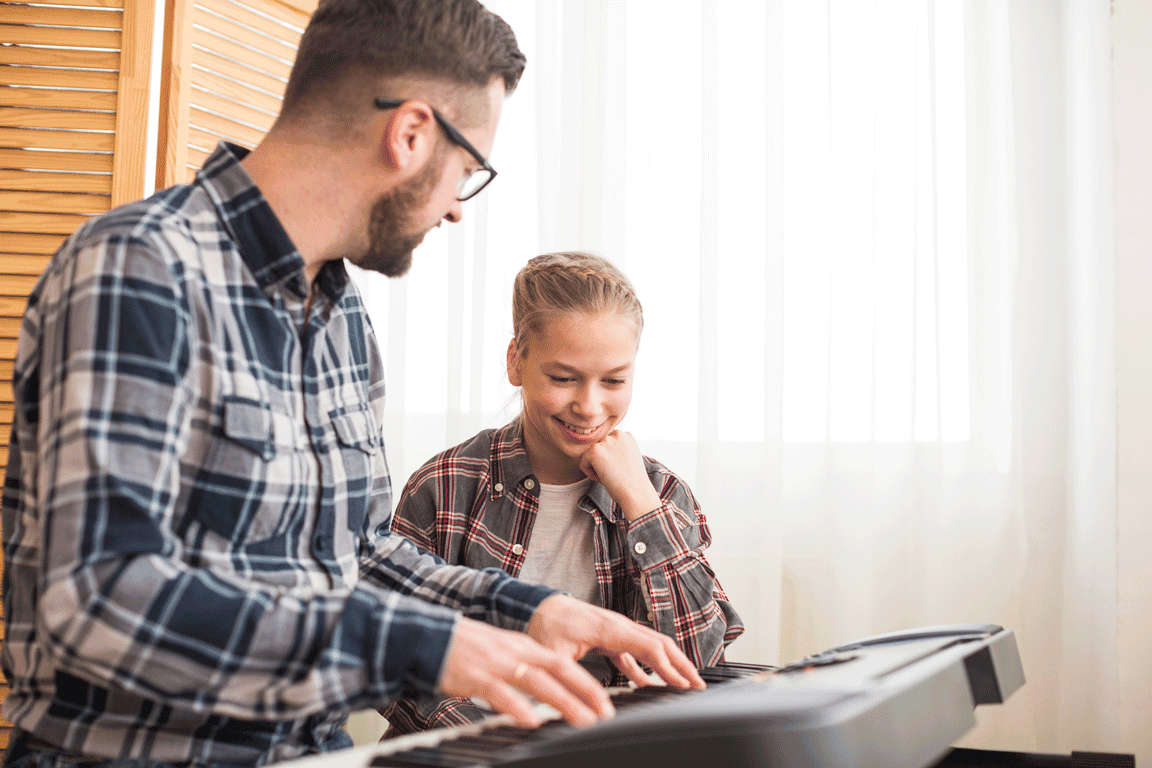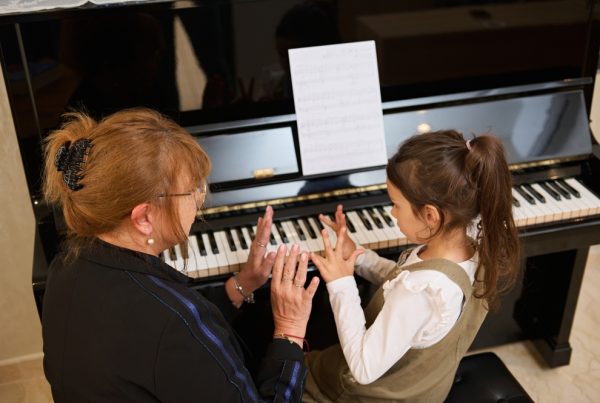Finding the best at home piano lessons for kids can feel overwhelming, yet it is one of the most rewarding investments you will ever make in your child’s growth. Parents in Utah now have a unique option: Volz Piano’s “Piano Teachers that Drive to You” program. This guide explores every facet of choosing at home piano lessons for kids—from cognitive and emotional benefits to cost, curriculum, and daily practice routines—so you can confidently begin your child’s musical adventure.
Table of Contents
- 1. Why Choose the Best At Home Piano Lessons?
- 2. Cognitive Benefits of Piano Education
- 3. Emotional & Social Advantages
- 4. Inside the Volz Piano Method
- 5. Piano Teachers That Drive to You in Utah
- 6. Creating a Productive Home Piano Space
- 7. Curriculum & Daily Practice Plans
- 8. Parental Involvement Strategies
- 9. Cost & Value Considerations
- 10. How to Choose a Traveling Piano Teacher
- 11. FAQs
1. Why Choose the Best At Home Piano Lessons?
When lessons happen in the living room, children relax faster, parents save drive time, and practice becomes part of everyday life. Experienced mobile teachers note that home environments help kids transfer new skills directly to their own instrument, cementing progress lesson by lesson. Convenience aside, in-home piano lessons for kids often translate into higher lesson attendance and fewer scheduling conflicts. It is exactly why families across Utah seek piano teachers that come to your home and why Volz Piano’s model resonates with busy households.
2. Cognitive Benefits of Piano Education
Music, Math, and Language
Research shows that music-integrated lessons boost math scores, while a celebrated MIT study found that kindergarteners who took piano improved phonemic awareness. These findings prove that piano education for children supports academic success beyond the keyboard.
Executive Function & Memory
Neuroscientists at the University of Geneva report that musical training strengthens executive functions, sharpening attention and working memory. For young brains, this translates into faster problem-solving in school.
3. Emotional & Social Advantages
An eight-week intervention demonstrated that structured music programs enhance children’s emotion-regulation skills (read the study). Performing a new song builds self-confidence, and ensemble recitals teach teamwork—skills that benefit life well beyond piano class.
4. Inside the Volz Piano Method
The Volz Piano Method blends ear-training, creative improvisation, reading, and rhythm games in a progression crafted exclusively for young beginners. Because the curriculum is age-specific, even preschoolers can enjoy piano instruction at home for kids without feeling overwhelmed. Weekly assignments emphasize micro-goals that build toward mastery, making it the most structured piano curriculum at home for children in Utah.
5. Piano Teachers That Drive to You in Utah
Volz Piano’s vetted instructors travel across Salt Lake County and Utah County—each holding music-education credentials and background checks. This piano teachers that drive to your home for children service means kids piano classes at home can slot into your family routine right after homework or sports. Because teachers carry method books, rhythm instruments, and even portable pedals, the program delivers a personalized piano instruction at home for kids experience every week.
6. Creating a Productive Home Piano Space
Design a clutter-free corner with proper bench height, clear lighting, and a music stand at eye level. Keep a practice chart, stickers, and a metronome handy. According to the National Association for Music Education, playful, well-organized spaces encourage longer engagement and better focus.
Bonus Tip: For piano practice for kids at home, place easy-to-read reminders of this week’s goals right on the fallboard so children know exactly what to practice first.
7. Curriculum & Daily Practice Plans
Beginners thrive on short, daily sessions. Education platform Pianote advises 15–30 minutes of focused practice for novices. Use a “three-part” routine—warm-up, repertoire, and creative play—to reinforce muscle memory. Encourage beginner piano lessons at home for kids to end with an improv game so they finish on a high note.
- Warm-Up: Five minutes of finger patterns
- Repertoire: Ten minutes on this week’s piece
- Creative Play: Five minutes of composition or app-based rhythm drills
8. Parental Involvement Strategies
Active parents multiply progress. Simple actions—clapping a steady beat, attending mini-recitals, or tracking practice minutes—signal support. NAfME highlights that music study nurtures 21st-century collaboration and perseverance skills (learn more), so celebrate every milestone!
9. Cost & Value Considerations
Nationwide data show private in-home piano lessons for kids average $40–$80 per hour. Volz Piano bundles travel, customized materials, and goal reviews, making its fees competitive with studio rates when you factor in saved commute time and fuel. Ask about sibling discounts and Utah Fits All Scholarship acceptance for affordable at-home piano lessons for children.
10. How to Choose a Traveling Piano Teacher
Look for degrees in music education, background checks, child-centered methods, and sparkling parent testimonials. A seasoned instructor will tailor lessons to learning styles, offer personalized piano instruction at home for kids, and commit to clear progress reports. Interview at least two candidates to compare teaching philosophies, then select the mentor who inspires your child’s curiosity.
11. Frequently Asked Questions
What ages do Volz Piano teachers accept?
Most children start between ages 5 and 7, but the Volz Method includes preparatory games for eager 4-year-olds.
How long is each lesson?
Standard sessions are 45 minutes, but younger beginners may start with 30-minute lessons to maintain focus.
Do we need an acoustic piano?
A weighted-key digital piano with a full 88-key range is ideal. Your teacher can offer purchase guidance.
How soon will my child play songs?
Within the first month, most students can perform simple melodies using both hands.
Can lessons continue during vacations?
Yes—virtual check-ins or prerecorded video feedback keep progress steady when families travel.



